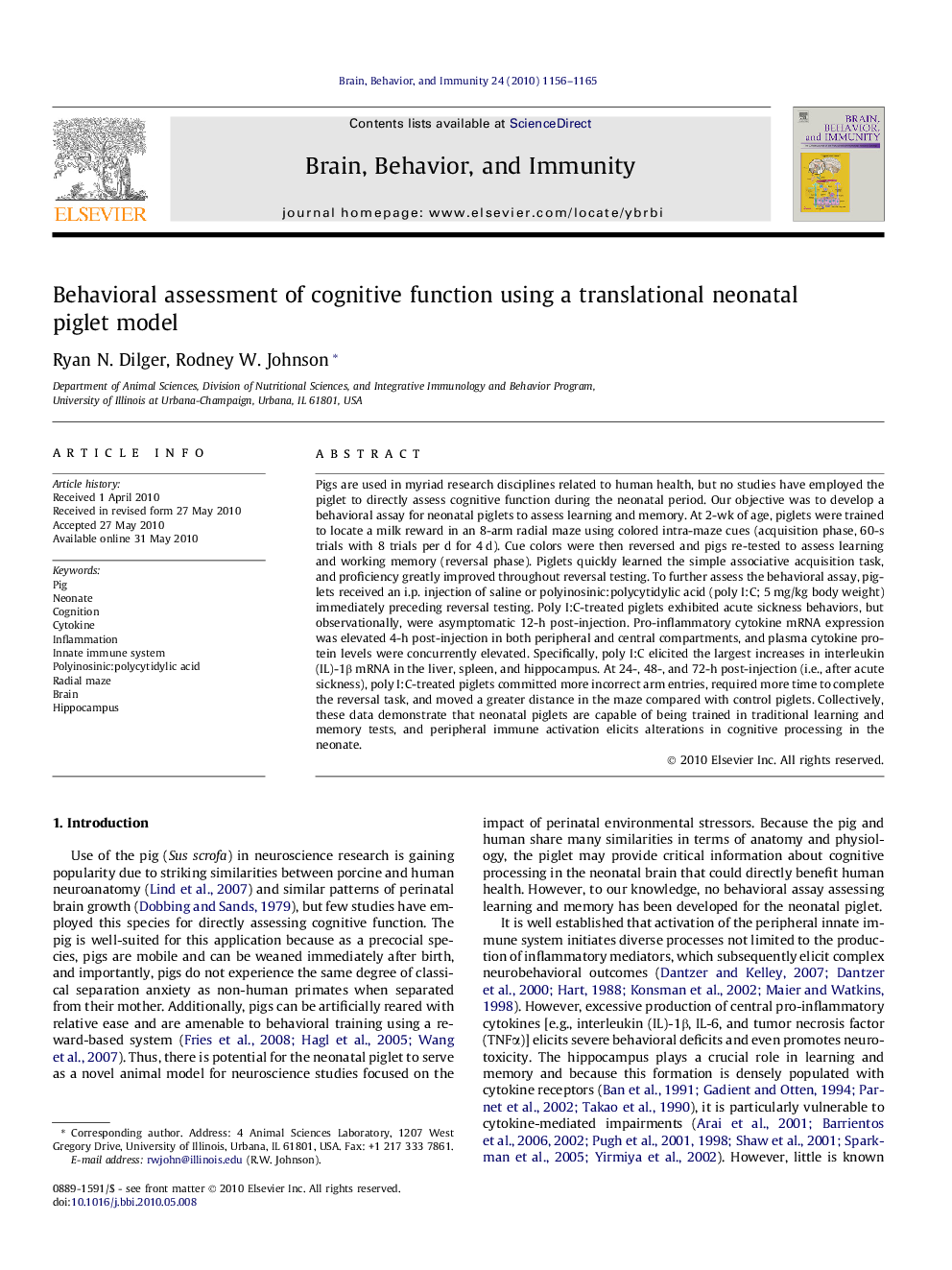| Article ID | Journal | Published Year | Pages | File Type |
|---|---|---|---|---|
| 922574 | Brain, Behavior, and Immunity | 2010 | 10 Pages |
Pigs are used in myriad research disciplines related to human health, but no studies have employed the piglet to directly assess cognitive function during the neonatal period. Our objective was to develop a behavioral assay for neonatal piglets to assess learning and memory. At 2-wk of age, piglets were trained to locate a milk reward in an 8-arm radial maze using colored intra-maze cues (acquisition phase, 60-s trials with 8 trials per d for 4 d). Cue colors were then reversed and pigs re-tested to assess learning and working memory (reversal phase). Piglets quickly learned the simple associative acquisition task, and proficiency greatly improved throughout reversal testing. To further assess the behavioral assay, piglets received an i.p. injection of saline or polyinosinic:polycytidylic acid (poly I:C; 5 mg/kg body weight) immediately preceding reversal testing. Poly I:C-treated piglets exhibited acute sickness behaviors, but observationally, were asymptomatic 12-h post-injection. Pro-inflammatory cytokine mRNA expression was elevated 4-h post-injection in both peripheral and central compartments, and plasma cytokine protein levels were concurrently elevated. Specifically, poly I:C elicited the largest increases in interleukin (IL)-1β mRNA in the liver, spleen, and hippocampus. At 24-, 48-, and 72-h post-injection (i.e., after acute sickness), poly I:C-treated piglets committed more incorrect arm entries, required more time to complete the reversal task, and moved a greater distance in the maze compared with control piglets. Collectively, these data demonstrate that neonatal piglets are capable of being trained in traditional learning and memory tests, and peripheral immune activation elicits alterations in cognitive processing in the neonate.
